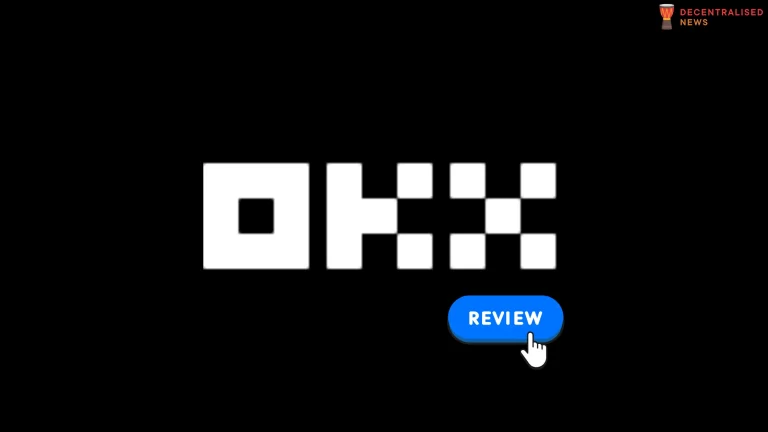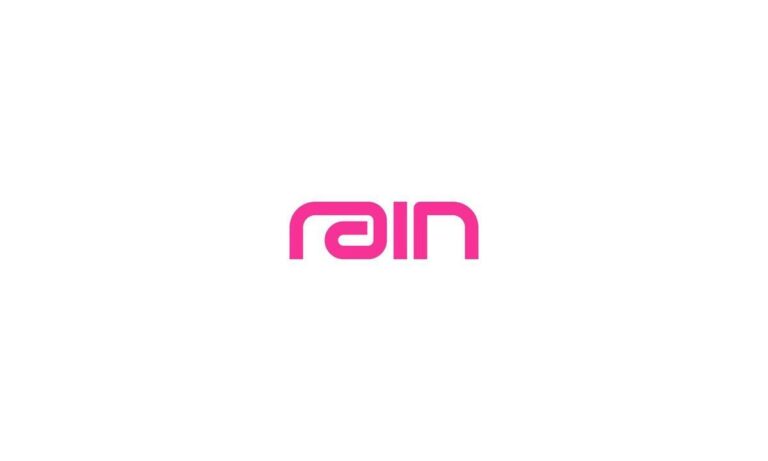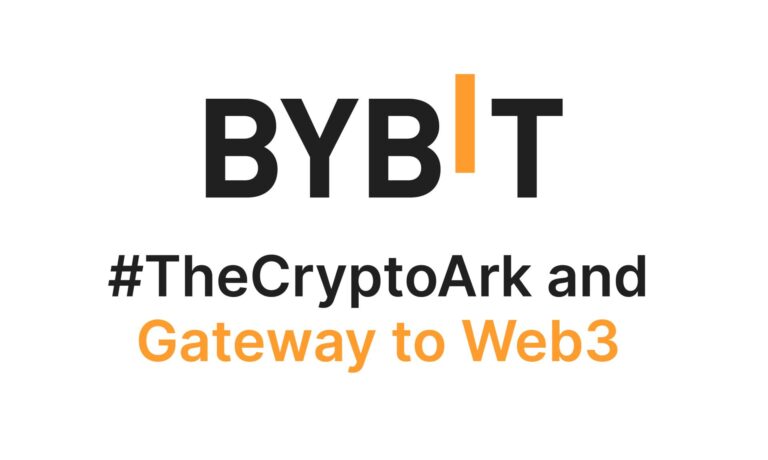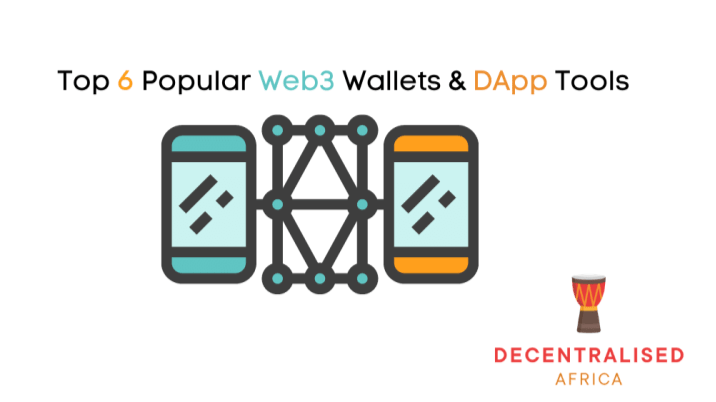
1) MetaMask
Metamask is a browser extension that makes it easier to access Ethereum’s decentralized app ecosystem. Additionally, it is also a wallet that holds ERC-20 tokens and allows one to use the services within the network. By linking to Ethereum-based decentralized apps, you can spend coins on games, stake tokens in gambling apps, or even trade them on decentralized exchanges. Read the full guide on How to use MetaMask.
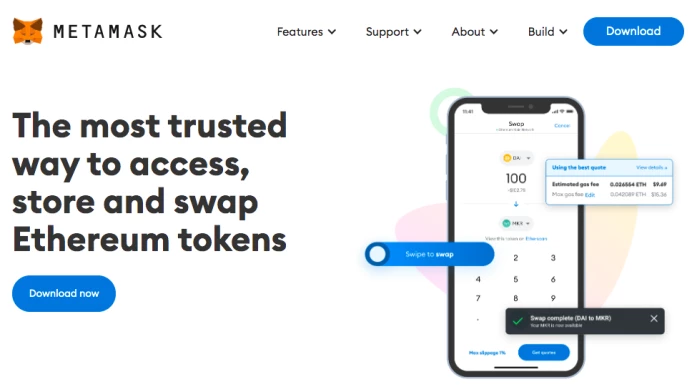
Source: MetaMask
2) Fortmatic (Magic)
Fortmatic is an user-friendly alternative to web3 wallets like Metamask. It allows users to use a phone number or email address to connect to Ethereum-based applications, all without the need for a browser extension. Fortmatic was founded in 2018 by Sean Li. In May of 2020, Fortmatic announced that it has secured $4M in funding via a seed round with participation from Placeholder VC and Naval in parallel with it’s rebrand to Magic. Fortmatic is said to be quite secure and its SOC 2 Type 1 compliant with a non-custodial HSM architecture. It offers multi-authentication so users have access to: OTP code, device 2FA, recovery email, and more.
3) Authereum
A usability-focused wallet with no transaction fees and a fiat on-ramp. Authereum is a wallet provider and dapp login solution that uses contract based accounts, meta transactions, Ethereum Name Service and more to provide a seamless onboarding experience that users are familiar with. Logging into Authereum is just like logging into a web 2.0 application with a username and password. Access your favorite dapps wherever you go with no download required!
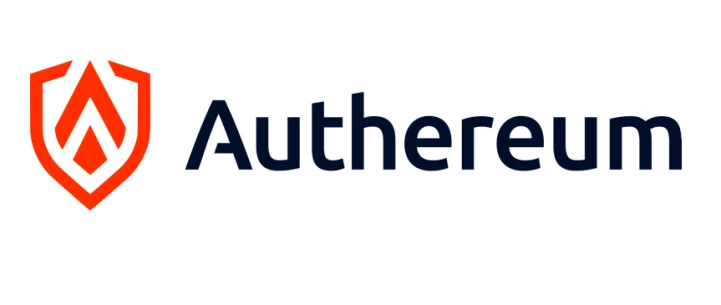
Source: Authereum
Authereum is live on the Ethereum mainnet. Your Authereum account is 100% decentralized. You are free to do what you want with your deployed contract based account with or without any Authereum services. If you are using the Authereum website and services, you will be able to use some features that are centralized for convenience. Authereum provides these services to help ease the process of using cryptocurrencies. If you do not want to use any of these services, you are free to do everything on your own without any centralization or censorship from Authereum.
4) Dapper
Dapper is a peer-reviewed, commercially audited smart contract wallet and browser extension that pays gas fees for you. Dapper is a hosted NFT service that is integrated with third parties who provide Fiat and Stablecoin custodial services directly to users. Dapper is not a money service or bank. There is no FDIC insurance on Hosted Wallet NFTs. At no point does Dapper or anyone else have access to any of your private device keys – these are generated and stored securely on each device. Dapper Labs gained popularity due to the CryptoKitties – credited with being one of the world’s very first NFT projects. Dapper enables users to interact with non-fungible tokens and play blockchain-powered virtual games.
5) Bitski
A simple-to-use wallet that allows users to sign up with an email and password. Bitski lets developers build user-friendly and cross-platform Ethereum apps. Using Bitski, you can build a decentralized app or game that feels just as easy to use as a standard app. They provide you with access to the Ethereum network through their hosted nodes, and provide access to the user’s wallet using OAuth. Since their wallets are managed in the cloud instead of tied to a specific device, users can access them from anywhere without compromising security.
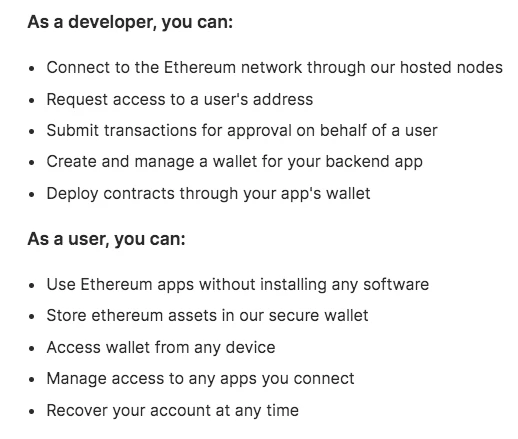
Unlike most current wallets which are stored locally on your computer, Bitski’s wallets are stored in tamper-proof hardware security modules. The keys never leave the hardware. Since your wallet is tied to your user account, it can be recovered if you forget your password, lose your phone, or get a new computer. This kind of recovery is more secure than writing down a passphrase. Bitski uses OAuth to provide access to a user’s wallet. Through their SDK your app can request access to a user’s Bitski account. If permission is granted, your app can then use standard tools like web3.js to interact with the Ethereum network.
6) Torus
Torus is a user-friendly, secure, and non-custodial key management system for DApps. A low friction wallet that allows you to login with Facebook, Google, and other OAuth providers, Torus runs a Distributed Key Generation protocol that allows applications to access its generated keys via OAuths and thus existing user accounts. You can try out the experience on the Torus Wallet.
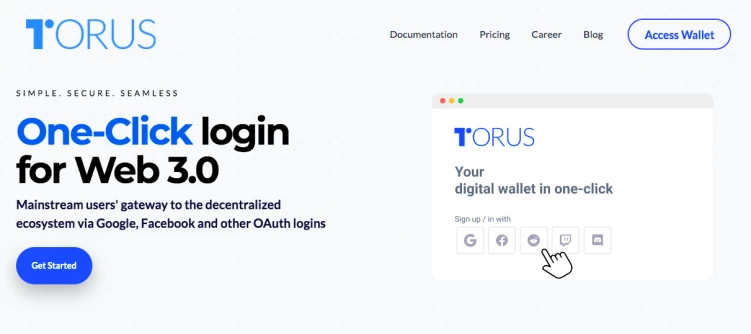
Source: Torus Wallet

